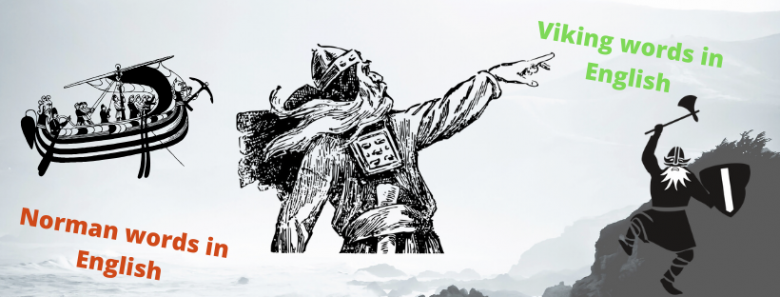In medieval times, the English language was enriched by a large number of words coming from Old Norse, the language of the Vikings, and French, after the Norman conquest of 1066. Words such as sky, skull, berserk, bull, cake, egg, fog, guest, kid, knife, knot, lad, mistake, plough, race, reindeer, saga, skin, skirt, wing, window, …
From the beginnings to the Norman Conquest (500 BC – 1066 AD).

